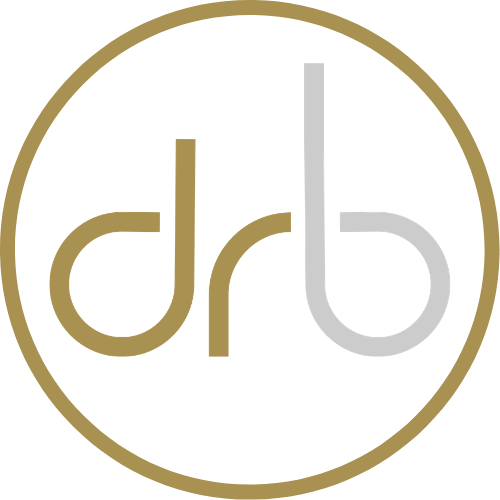
Cost Of A Life Coach
Let's consider a hypothetical scenario where a young professional is seeking guidance to navigate a career transition. The initial question that often arises when contemplating about life coaching services is, 'How much does it cost?'
The answer as to what is the cost of a life coach can vary significantly depending on several factors.
Understanding the nuances of pricing structures, the value derived from coaching, and strategies for budgeting and negotiation can shed light on whether investing in a life coach aligns with your goals and aspirations.
Average Cost Of Life Coaching
What affects life coaching prices?
The average cost of life coaching depends on several factors. First, the price depends on the coaching session structure, whether hourly or packaged. Hourly rates are higher because they offer more flexibility and customization, while package costs may offer discounts for multiple sessions.
The average cost also depends on the life coach's experience and expertise. Coaches with advanced certifications, specialized training, or a track record may charge more because of their expertise and value. Life coaches differ from psychologists in their coaching approach and scope. However, newer coaches may charge less to attract clients and build their reputation.
Life coach location can also affect coaching costs. Coaches in big cities or high-cost areas may charge more to cover overhead and stay competitive. However, in smaller towns or regions with lower living costs, coaches may offer lower rates to attract local customers.
Average Cost Of Life Coaching
Life coaching prices depend on many factors. The cost of coaching depends on the coach's experience, expertise, duration, frequency, format (in-person, virtual, or group), and services or packages offered. So, it is important to understand the role of a life coach and what does a life coach do in order to know what to expect when you hire one.
Due to their perceived value, experienced coaches with a track record of success and expertise in career transitions, relationships, and wellness charge more. Coaching packages may include extra resources, assessments, or follow-up support, increasing the cost.
Coaches in big cities charge more than those in the country. Coaches with a strong online presence or large following can also charge more due to high demand.
Using technology for virtual sessions or offering customized coaching packages can also have an impact on pricing. As the coaching industry evolves, coaches find new ways to deliver value to clients, which can have an impact on cost structures.
Different Pricing Models
Let's examine life coaching pricing models. To meet their clients' diverse needs, life coaches offer different pricing structures. Coaching packages, in which clients pay a set amount for a set number of sessions or a coaching program, are common. This model lets clients know the total cost and commit to multiple sessions for more comprehensive coaching.
Charge rates allow life coaches to charge clients based on session time. This model is flexible for clients who prefer pay-as-you-go or don't want a package. Some life coaches offer discounts for long-term clients, encouraging a mutually beneficial partnership.
To find a life coach that fits your needs and budget, you must understand these pricing models. Whether you choose a coaching package for structure or prefer fee rates, working with a life coach can be well worth the cost. In the next section, we'll discuss life coaching value versus price.
Value Vs. Price: Is It Worth It
The value of a life coach must be considered. Although prices vary, the life coaching experience is worth it. Why is a life coach worth it?
- Mindset Shift: A skilled life coach can help you challenge limiting beliefs and shift your mindset towards growth and success. This shift in perspective is priceless in achieving your goals.
- Accountability: By having someone hold you accountable, you're more likely to stay committed to your actions. The value of this accountability partner extends far beyond the coaching sessions themselves.
- Personalized Guidance: Life coaches offer personalized guidance tailored to your specific needs and goals. This individualized approach ensures that you're receiving targeted support to maximize your potential.
- Long-Term Benefits: While the cost of a life coach may seem significant initially, the long-term benefits in terms of personal development, career advancement, and overall happiness make it a worthwhile investment in yourself.
The value of working with a life coach goes beyond money. You are investing in your growth, well-being, and success.
Budgeting For Life Coaching

Understanding the financial implications of investing in life coaching is crucial for budgeting. When budgeting for life coaching, the costs and expenses must be considered. The cost of life coaching is important. Coach experience, expertise, and location all have an impact on rates. Balance the fee with the value you expect from the coaching sessions.
The coach's rate and any additional costs must be considered when budgeting for life coaching. These expenses may include coach-recommended materials, workshop or seminar fees, or other personal development investments.
Budgeting for life coaching requires financial discipline and openness to coaching's transformative potential. Understand the costs and set a realistic budget to make a beneficial investment in your personal growth and well-being. Remember that life coaching fees are an investment in your success.
Negotiating Fees With Coaches
How do we negotiate life coaching fees so that both parties benefit? Coaching fee negotiations are delicate but necessary to reach a mutually agreeable agreement. Innovative ways to navigate this discussion:
- Value-Based Pricing: Encourage coaches to align their fees with the value they provide. Emphasize the impact their services have on your personal or professional growth, highlighting the transformative benefits you expect.
- Package Customization: Seek personalized service packages tailored to your specific needs. Discuss which services are essential for you and which ones you can forgo to optimize the value you receive for the fees you pay.
- Performance-Based Fees: Consider negotiating a fee structure tied to specific outcomes or milestones. This innovative approach ensures that you pay based on the actual results achieved, motivating the coach to deliver tangible value.
- Long-Term Commitment: Explore the possibility of reduced fees for a longer-term commitment. By committing to an extended coaching relationship, you can negotiate a more favorable rate that reflects the ongoing nature of the services provided.
Life coach fee negotiations necessitate open communication, comprehension of services, and mutual benefit. Strategic and creative thinking can help the client and coach negotiate a fair and rewarding fee.
Free Vs. Paid Resources

To maximize benefit, we prioritize quality and relevance when choosing free or paid resources. Coaching depends on this choice because it affects personal growth. Free resources offer introductory materials, basic tools, and general advice, making them ideal for beginners and those on a budget. Unpaid blog posts, podcasts, webinars, and community forums can provide valuable insights and tips.
Paid resources offer more detailed content, personalized guidance, and customized programs. These resources are expensive, but their value can outweigh them. Paid coaching, courses, workshops, and one-on-one sessions increase accountability, expertise, and support, resulting in sustainable growth.
Consider your goals, preferences, and budget when assessing coaching resource costs. Some people may benefit from a mix of free and paid resources to balance information and personalized support. Your commitment to self-improvement and willingness to invest in free or paid resources determine your choice.
Short Summary
In conclusion, the cost of a life coach can vary depending on factors such as experience, specialty, and location. It's important to consider the value you'll receive from the coaching relationship rather than just the price.
Budgeting and negotiating fees with coaches can help make it more affordable. There are also free resources available if a paid coach isn't within your budget.
Ultimately, investing in a life coach can be a worthwhile investment in your personal growth and development.
Frequently Asked Questions
How Can I Find A Reputable Life Coach Who Fits My Specific Needs And Goals?
We do extensive research to find a reliable life coach who meets our needs and goals. We check the coach's credentials, online reviews, and trusted recommendations.
To ensure a satisfactory fit, we must communicate our goals and expectations.
Are There Any Certifications Or Qualifications I Should Look For In A Life Coach Before Hiring Them?
Consider certifications and qualifications when choosing a life coach. Find coaches with ICF or CCE certifications. These certifications verify that the coach meets standards and has the skills to help you achieve your goals. For a successful coaching experience, choose qualified coaches.
Can Life Coaching Be Covered By Health Insurance Or Employee Benefits?
Life coaching is an investment in self-improvement. Transformation is valuable, even if health insurance and employee benefits rarely cover it.
Life coaching helps people succeed through goals, mindsets, and action plans. Benefits often outweigh costs, improving mental health, productivity, and satisfaction. It's a proactive self-improvement strategy with big rewards.
What Is The Typical Duration Of A Life Coaching Session And How Often Should I Expect To Meet With My Coach?
Most clients meet with their life coach weekly or biweekly for optimal progress, and sessions last 45–60 minutes.
Consistent sessions sustain momentum and foster growth. A regular cadence provides structure and accountability to help you reach your goals. This approach makes coaching more effective and efficient.
How Can I Measure The Success Or Effectiveness Of Life Coaching Sessions In Improving My Overall Well-Being And Achieving My Goals?
Goal achievement, well-being, and personal growth measure the success of life coaching. We evaluate mindset, behavior, and life satisfaction.
Reflecting on successes, new skills, and self-awareness helps us evaluate effectiveness. Communicating openly with our coach, setting clear goals, and regularly assessing our progress can help each session improve our personal development.
Are you doing what matters?
Cheers, Dr. Ben

#LifesWork #LifeCEO #DRBENCARVOSSO #Reflection #Rituals #Pictures

